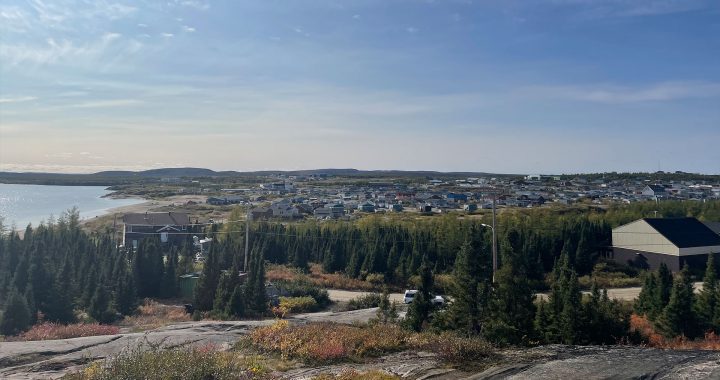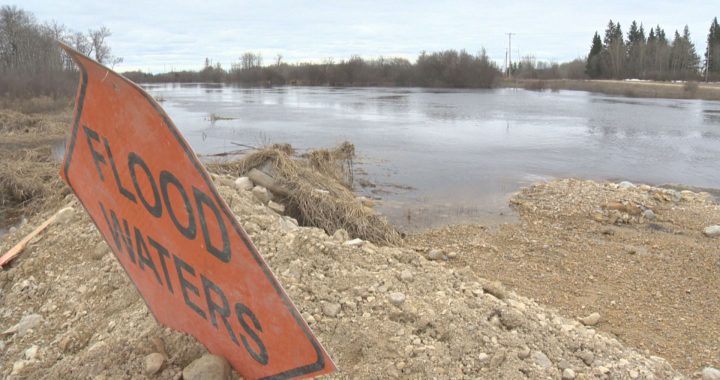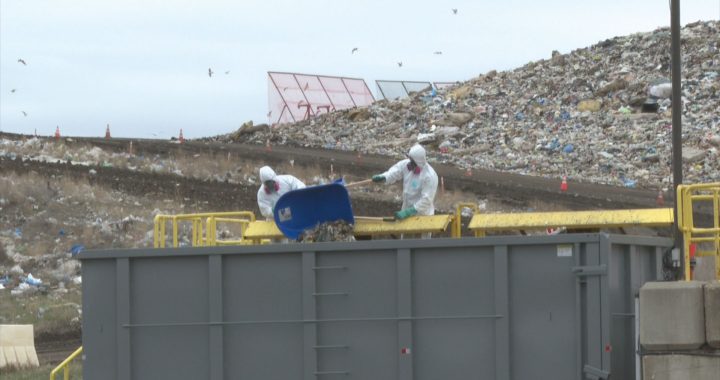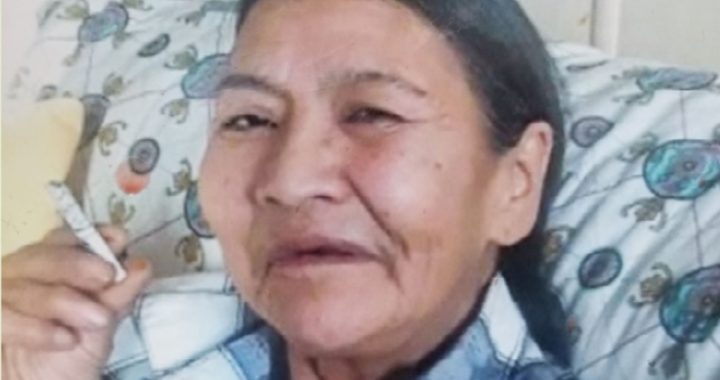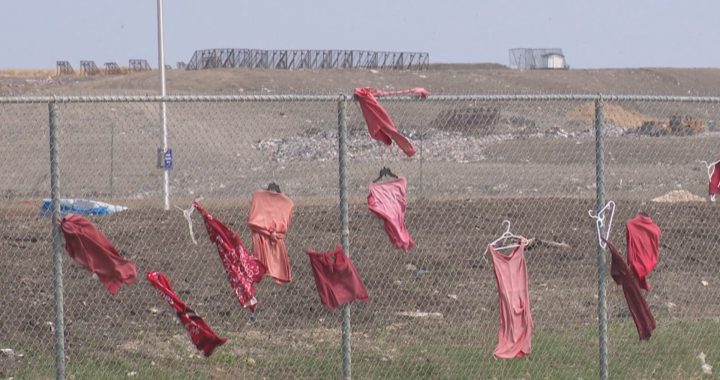
There is a wide array of promises to consider in the leadup to election day on Sept. 20. Photo: APTN
Green Party Leader Annamie Paul may have had the quote of the evening during the English language debate when she said “reconciliation is treated like a buffet” all too often in Canada.
Governments pick which rights they want to respect while leaving others alone like an unsavoury dish.
But now, as people prepare to vote on Sept. 20, there’s a smorgasbord of policies, promises and proposals on display for Indigenous and non-Indigenous people to choose from.
Below is a non-comprehensive list of party platform pledges made to and about Indigenous Peoples compiled by APTN News.
The list is organized by topic and some pledges that may cross over into other areas are not duplicated.
If one of the parties isn’t included in a particular topic that means APTN couldn’t locate a promise about it.
Water
Liberals:
- Make any investments necessary to eliminate all remaining drinking advisories.
- Make sure that resources and training are in place to prevent future ones.
- Move forward on an agreement in principle to resolve national class action litigation related to safe drinking water in First Nations communities.
Conservatives:
- Recognize safe drinking water as a fundamental human right and end long-term drinking water advisories.
- Target high-risk water systems.
- Work with Indigenous communities to find new approaches, such as regional or coalition-based governance, that will help ensure water systems investments are protected and continue providing clean drinking water in the long term.
NDP:
- Make the full investments required to ensure clean water and lift all drinking water advisories for good right now.
- Support Indigenous-led water management training programs and water system operations as an immediate priority.
Greens:
- Develop a national water strategy to ensure safe drinking water for all Canadians.
- Invest in and upgrade critical infrastructure to ensure safe water access and to be able to lift boil water advisories in every community.
- Support Indigenous-led processes to implement safe drinking water and wastewater management systems.
Child welfare
Liberals:
- Implement the Act Respecting First Nations, Inuit, and Métis Children, Youth and Families.
- Continue to reform child and family services in Indigenous communities.
- Ensure that First Nations youth who reach the age of majority receive the supports they need for up to two additional years and implement the orders of the Canadian Human Rights Tribunal.
- Work with Indigenous partners to ensure fair and equitable compensation for those harmed by the First Nations Child and Family Services program.
- Fully fund Jordan’s Principle, the Inuit Child First Initiative and the unique needs of Métis children.
NDP:
- Respect, support and resource Indigenous jurisdiction over child welfare systems, and back this commitment with long-term, predictable funding guaranteed in legislation.
- Fully implement the Canadian Human Rights Tribunal orders which ordered the Canadian government to stop chronically underfunding child welfare services on reserve.
- Work with the First Nations Child and Family Caring Society to implement the Spirit Bear Plan.
- Put an immediate end to government litigation against Indigenous children.
- Fully implement Jordan’s Principle, working with the provinces and territories to end the delays and ensure equitable access to health services and educational supports.
Greens:
- Recognize that Indigenous children in residential schools have been replaced by Indigenous children in foster care.
- Stop fighting the Canada’s Human Rights Tribunal orders requiring the government to compensate the child and family victims of Canada’s discrimination.
- Ensure non-status First Nations’ children living off reserve have access to Jordan’s Principle.
- Adopt recommendations on funding for First Nations Child and Family Services from the Institute for Fiscal Studies and Democracy’s 2020 report.
Unmarked graves
Liberals:
- Work to build a national monument in Ottawa to honour residential school survivors and victims.
- Appoint a Special Interlocutor who will work with Indigenous communities, provincial and territorial governments, to develop the necessary legal and regulatory framework to advance justice.
- Support communities who wish to undertake burial searches at the former sites of federal institutions.
- Fund the construction of a permanent home for the National Centre for Truth and Reconciliation.
- Provide sustained financial support for the centre for core operations in fulfilling the mandate issued by the Truth and Reconciliation Commission with dedicated support for the work on Missing Children and Unmarked Graves.
- Accelerate implementation of the TRC’s Calls to Action.
Conservatives:
- Develop a comprehensive plan to implement Calls to Action 71 to 76.
- Fund the investigation at all former residential schools in Canada where unmarked graves may exist, including the sites where children have already been discovered.
- Ensure that proper resources are allocated for communities to reinter, commemorate, and honour any individuals discovered through the investigation, according to the wishes of their next of kin.
- Develop a detailed and thorough set of resources to educate Canadians of all ages on the tragic history of residential schools in Canada.
- Build a national monument in Ottawa that honours residential school survivors and all the children who were lost.
NDP:
- Fully fund the search for grave sites at former residential schools, as well as the maintenance, commemoration, reburial and protection of residential school cemeteries according to the wishes of Indigenous families, residential school Survivors and communities.
- Work with nations and survivors to establish memorials to those lost to residential schools.
- Appoint a special prosecutor to pursue those who inflicted great harm on Indigenous children in Canada’s residential school system.
- Require that churches and governments hand over any and all records that could be helpful in identifying the children who lay buried in unmarked graves, or in finding individuals who were involved in their deaths.
- Support and fully fund community-driven solutions for healing, including projects similar to the former Aboriginal Healing Foundation.
Greens:
- Provide sustainable funding for new and existing Indigenous Healing Centres to address the harms caused by residential schools.
- Honour the original request from the Truth and Reconciliation Commission for funding for work on the Missing Children and Unmarked Burials Project.
- Call on the Pope to apologize on behalf of the Catholic Church for its involvement in residential schools.
Bloc Québécois
- Put pressure on the federal government to realize the TRC calls to action.
- Put pressure on the federal government so that communities have all the necessary resources to lift the veil over the historical reality of residential schools and force churches to open their archives.
Rights and sovereignty
Liberals:
- Support Indigenous-led processes for rebuilding and reconstituting nations, advancing self-determination and work in partnership on implementation of treaties, land claim and self-government agreements with appropriate oversight mechanisms to hold the federal government accountable.
- Support First Nations-led processes to transition away from the Indian Act.
- Accelerate resolution of outstanding land claims.
- Advance the priorities of Indigenous communities to reclaim full jurisdiction in the areas that matter to them such as child and family services, education, health care, policing, tax, and the administration of justice.
- Support and fund the revitalization of Indigenous laws, legal systems, and traditions.
- Host a First Ministers Meeting on First Nations, Inuit, and Métis Nation priorities.
- Include, in all cabinet ministers’ mandate letters, the requirement to implement UNDRIP, and ensure their offices and ministries work alongside Indigenous peoples to advance their rights.
Conservatives:
- Increase Indigenous governance capacity by training young Indigenous leaders including through the Institute of Corporate Directors.
- Implement Article 18 of UNDRIP by working with First Nations to develop a transparent process that communities can use to identify who represents them in consultations if it is to be someone other than elected Chiefs.
- Work with First Nations and other Indigenous rights holders to develop a consultation process that allows for more meaningful dialogue.
NDP:
- Implement the United Nations Declaration on the Rights of Indigenous Peoples.
- Ensure that Canada’s laws, policies, and practices are consistent with Canada’s human rights commitments – including cultural rights, land rights, and rights to self-determination and self-government.
- Replace mere consultation with a standard of free, prior and informed consent for Indigenous communities affected by government policies
- Recognize and respect treaties, supporting Indigenous Nations who are building and re-building their governance structures.
- Respect Inuit self-determination by co-developing the federal government’s Arctic Policy Framework through shared governance within the Inuit-Crown Partnership Committee.
- Recognize Métis self-determination and respect the path forward established by the Métis National Council and its governing members.
Greens:
- Respect Indigenous sovereignty over self-defined and self-governed lands.
- Respect all rights that their title to land entails, including the right to stewardship.
- Respect Inuit sovereignty over Inuit Nunangat.
- Support the full implementation of treaties and other self-government agreements between Canada and Indigenous governments.
- Uphold Canada’s fiduciary responsibility, fulfill Canada’s responsibilities in agreements, honour treaties, and respect all rights of Indigenous Peoples, including their inherent rights of self-government.
- Work towards the creation of an Indigenous Lands and Treaties Tribunal Act.
- Welcome nation-to-nation engagement with Indigenous Peoples in Canada that is grounded in the UNDRIP doctrine of free, prior and informed consent.
- Formally repudiate the doctrine of terra nullius, the doctrine of discovery, and other doctrines of superiority.
- Establish a process to transition out from under the Indian Act
Bloc Québécois
- Work to get rid of the Indian Act.
- Work together with Indigenous Peoples on the federal scene to strengthen and guarantee their inherent rights.
- Ensure the federal government implements UNDRIP within its jurisdictions.
People’s Party
- Seek options to replace the Indian Act with a new legal framework that guarantees equal rights and responsibilities to Indigenous people as Canadians.
- Explore further avenues to promote the establishment of individual property rights on reserves.
- Reaffirm the federal government’s power to approve natural resources and infrastructure projects after adequate consultations with affected Indigenous groups, and in partnership with them.
MMIWG
Liberals:
- Accelerate the implementation of the Federal Pathway to Address Missing and Murdered Indigenous Women, Girls and 2SLGBTQQIA+ People.
- Accelerate our work with all partners in our collective and shared priorities in the 2021 National Action Plan.
- Create a standing Federal-Provincial-Territorial table on MMIWG and 2SLGBTQQIA+ People.
Conservatives:
- Develop, in collaboration with Indigenous groups, a National Action Plan that addresses violence against Indigenous women and girls.
NDP:
- Implement the inquiry’s calls for justice and the calls to action brought forward by communities.
- Establish a comprehensive plan to address violence against Indigenous women, girls and LGBTQI2S+ People
- Ensure that all those fleeing violence have access to culturally appropriate programming, emergency shelters and transitional housing.
- Ensure full gender equality for First Nations status as a matter of priority, consistent with Canadian and international court rulings.
Greens:
- Implement all of the calls for justice from the final report of the national inquiry into MMIWG.
Economic prosperity and business
Liberals:
- Expand the Aboriginal Entrepreneurship Program to enable businesses to access a new, zero-interest loan when a 10 per cent advance is not possible.
- Create a navigator position to help Indigenous entrepreneurs find programs that apply to their situation.
- Work with all government departments to analyze and, as appropriate, adjust eligibility criteria to ensure that programs are as inclusive as possible.
Conservatives:
- Work with Indigenous-led organizations to support communities that wish to become partners in good projects that meet high environmental standards.
- Create the Canadian Indigenous Opportunities Corporation that will support First Nations and Inuit organizations seeking to purchase an equity stake in major projects.
- Provide an initial $5 billion of capital for investment in projects across the country.
- Require future governments to consult with Indigenous Communities before cancelling approved projects when they have signed or are negotiating benefit agreements or partnerships.
- Creating a streamlined environmental review process for major projects that partner with First Nations.
- Consult with First Nations on overhauling the current funding models, with the goal of making it easier for First Nations to escape Third-Party Management, reducing red tape, and providing a clearer path with better incentives for moving towards block funding.
- Existing infrastructure of Indigenous national organizations (NACCA & CCAB), provide capacity building and business education to enhance and promote Indigenous business success and success stories
NDP:
- Support locally-driven economic development and create good jobs through infrastructure and public service investments, and expanded access to broadband internet and cell service for rural and remote communities.
- Find solutions for accessing capital and scale up, investing in Indigenous social enterprise projects and entrepreneurship, and to ensure that the federal government prioritizes procurement from Indigenous companies where possible.
- Support the economic and social self-reliance of Inuit by addressing the massive infrastructure deficit in Northern communities.
Infrastructure, housing and education
Liberals
- Invest $2 billion in Indigenous housing for First Nations, Inuit, and Métis Nation with over half of the funding available by the upcoming summer construction period.
- Co-develop an Indigenous Urban, Rural, and Northern Housing Strategy with Indigenous partners and organizations that will be a stand-alone companion to the National Housing Strategy, supported by a $300 million initial investment.
- Co-develop and fund Canada’s first National Indigenous Housing Centre, through which Indigenous people will fully oversee federal Indigenous housing programs once fully realized.
- Support the establishment of Indigenous-led institutions in housing and infrastructure, such as the First Nations Infrastructure Institute, that assists First Nations with their infrastructure needs.
- Build an Indigenous Early Learning and Child Care system that meets the needs of Indigenous families.
- Ensure more Indigenous families have access to high-quality programming.
Conservatives:
- Empower the First Nations Finance Authority to monetize government funding, leveraging the market to supercharge First Nations infrastructure.
- Remain open to exploring innovative new models to fund and deliver social services and critical infrastructure.
- Work with Indigenous groups including the Inuit, and with resource companies investing in the north to ensure that housing gets built.
NDP
- Implement Shannen’s Dream of equitable access to education, backed by federal investments and infrastructure.
- Support Indigenous youth and help them bridge the gap to post-secondary education through expanded financial assistance and increased educational opportunities for children who grew up in care, and distance education for rural and remote students.
- Fund on-reserve emergency management and prevention, including firefighting training and equipment.
- Protect infrastructure from climate change and increase the use of renewable energy.
- Implement a co-developed, fully funded Indigenous National Housing Strategy within 100 days in office.
Greens:
- Ensure that every First Nations, Métis and Inuit child has access to quality educational opportunities based on the expressed cultural, political and social priorities of the First Nations, Métis and Inuit governments, following meaningful consultation.
- Support the development of Indigenous education curricula that are language and culture-specific.
- Increase access to post-secondary education for Indigenous youth by removing the two per cent funding cap, as well as fully funding the program backlog.
- Develop inclusive and culturally appropriate Urban Indigenous Housing Strategies.
- Reinvest in housing for Indigenous communities.
- Change the legislation that prevents Indigenous organizations from accessing financing through CMHC to invest in self-determined housing needs.
People’s Party
- Ensure that Indigenous communities take more ownership of the services they receive in partnership with Ottawa and other levels of government.
- Review federal spending to ensure that programs are better targeted to benefit the indigenous population, in particular the communities that have the greatest needs.
Systemic racism
Liberals:
- Strengthen and boost funding to both the Anti-Racism Strategy and the Federal Anti-Racism Secretariat.
- Build on the progress made over the last 6 years and increase funding to multicultural community programs. These programs play an important role in supporting community organizations across the country as they fight racism.
- Fully implement Joyce’s Principle and ensure it guides our work in co-developing distinctions-based Indigenous Health legislation to foster health systems free from racism.
NDP:
- Make Joyce’s Principle will be the basis for a new approach to tackling systemic racism in health care.
- Take on white supremacist and neo-Nazi groups with a national action plan to dismantle far-right extremist organizations, including those that promote white supremacy.
- Ban carding by the Royal Canadian Mounted Police, and work with local partners across Canada to end this practice.
- Address discriminatory impact of mandatory minimums.
Greens:
- Conduct an immediate and comprehensive review of the RCMP role in policing municipalities and reserves.
- Invest funds that are divested from police services in social and community services.
- Develop a restorative justice model that will allow for transformative justice, meaningful accountability and rehabilitation.
- Expand on, and codify the requirement for sentencing judges to take into account systemic and historical racism when dealing with Indigenous persons.
- Eliminate mandatory minimum sentences and enable courts to determine appropriate sentences based on the circumstances of each individual case and established sentencing laws and principles.
Mental health
Liberals:
- Co-develop and invest in a distinction-based Mental Health and Wellness Strategy
- Commit $1.4 billion for a distinctions-based mental health and wellness strategy with First Nations, Inuit, and the Métis Nation
Conservatives:
- Provide $1 billion over five years to boost funding for Indigenous mental health and drug treatment programs.
- Support innovative approaches to address the crises of mental health and addiction, such as land-based treatment programs and programs delivered in Indigenous languages.
- Support the development of mental health and drug treatment programs by Indigenous people to develop capacity at the community level and allow for the delivery of culturally appropriate programs delivered in the appropriate Indigenous language.
NDP:
- Improve access to mental health and addiction treatment services both on and off reserve – including an evidence-based action plan to prevent suicide, backed by dedicated federal resources.
- Fully implement the New Democrat motion on suicide prevention passed by the House of Commons.
Greens:
- Increased support for Indigenous-led, culturally safe, mental health programs and services, rooted in Indigenous healing practices, land-based healing and the principle of self-determination.
- Ensure all programming is guided by the First Nations Mental Wellness Continuum Framework.
- Establish permanent program funding for the delivery of land-based, trauma-informed, community addictions care for Indigenous peoples.
- Increase targeted investment in the mental health workforce serving Indigenous communities.
- Double the current budget of the Aboriginal Health Human Resources Initiative.




